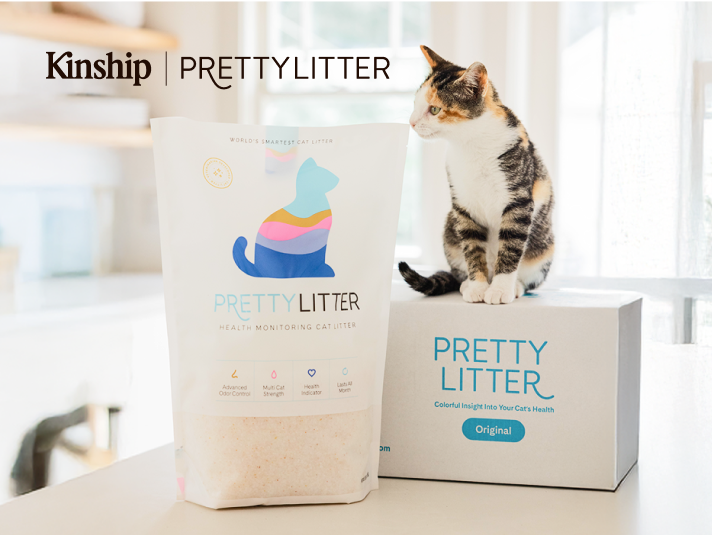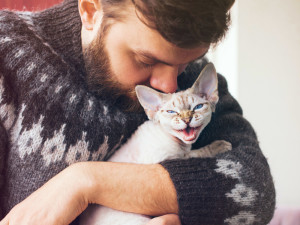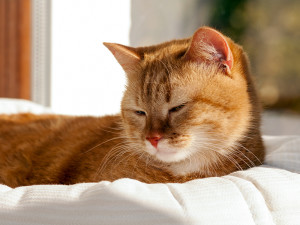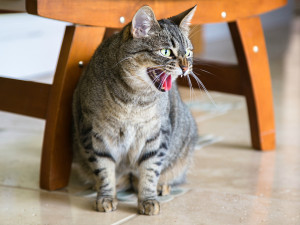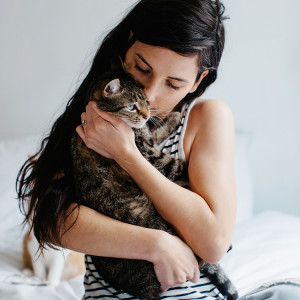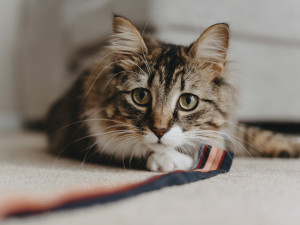If You Think Your Cat Is Manipulating You, You’re Right, Study Says
They know what they are doing when they “cry” for food.
You love your cat. But you also have a mutual understanding that you work for them. They may reward you with cuddles and affection, but they pretty much run the show, right? Actually, we’ve had confirmation of this for a while.
A 2009 study published in Current Biologyopens in new tab shows cats change the nature of their purring to influence peoples' behavior. (Raise your hand if you suspected all along that your cat was manipulating you!) Cats purr differently in tone and duration when they are asking for food than when they are purring in other situations, and people can tell the difference.
Save on the litter with color-changing tech that helps you better care for your cat.
The power of the “solicitation purr”
Purrs in the context of solicitation (aka they want something) are different enough from other purrs that people can consistently tell them apart. Mainly because they have a voiced element to them — a meow, a cry, or whatever you prefer to call it — because they are produced via activation of the vocal folds by air movement.
The humans in the study described the purrs when cats are seeking food to be more urgent and less pleasant. Purrs are generally low-frequency sounds, but the added element is higher in pitch, with acoustic similarities to human infant distress cries. Basically, the noises cats make when they are seeking food can sound like a cry from an upset baby (urgent and unpleasant, indeed).
Did you know that the cries of a human baby have evolved to make it impossible for people to ignore? Their cries can be so upsetting that many people complain bitterly if they hear such sounds — even briefly — while on an airplane or at a restaurant. The sound of a crying baby can be so aversive to adults that we will do anything we can to make it stop — and that’s a good thing because it keeps even the most sleep-deprived or distracted parents from ignoring their babies.
No matter how exhausted we are, we must care for them so they can survive and thrive, and our strong reaction to their cries is part of what makes that happen. The acoustic structure of purrs by cats who are soliciting food may have evolved to take advantage of us in the same way. In other words, they are manipulating you as if they were a human child.
How much do you spend on your pet per year?
Why cats exacerbate the “crying baby” manipulation
Cats are exploiting our caregiving tendencies, and it's working out really well for them. It’s working out fine for us, too: We love our cats, we want to take care of them, and solicitation purrs are easy for us to understand. Any communication across species that helps us understand our cats and figure out what they want is a biological miracle. Clear communication allows us to respond to our cats appropriately, which improves their quality of life.
Many cats vocalize more with people than they do with other cats, suggesting they are “talking” to us, not to other cats. Additionally, if purring in a certain way results in cats getting the food or attention they want, they are going to do it again.
If a person’s reaction to hearing a certain sound a cat makes is to feed them, the cat’s behavior is being positively reinforced and will be more likely to happen again in the future. For example, cats who ask for food early in the morning, causing their person to get out of bed, keep doing that because it is working for them. In fact, cats with a close one-on-one personal relationship with a human are more likely to exaggerate the “crying baby” part of their purr that is so effective at influencing that person’s behavior.
One way to look at this behavior is that cats are hijacking our empathy to get what they want. But it’s just as fair to interpret our response to their communication as just another expression of our unconditional love (manipulation or not).

